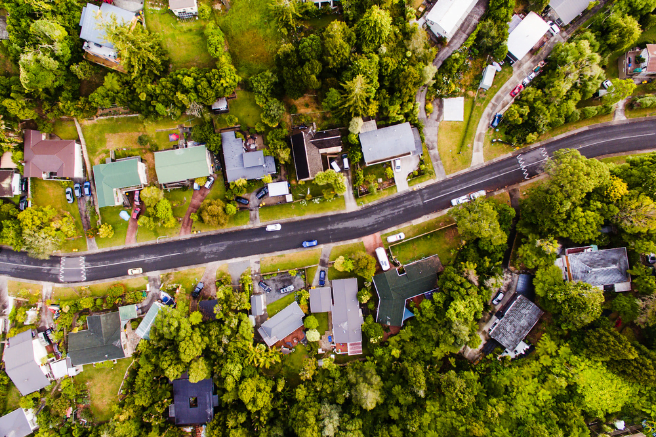Owners of land in New South Wales are facing a potential three-year surge in land tax, following the property boom of the early 2020s. While property prices across the state have dipped in recent months, land tax liabilities have increased due to inflated land values, with the bad news likely to continue for the next two years due to the way the land tax formula operates.
If you own a property in NSW that isn’t your main residence or used for primary production, then unless the value of your land holdings is below the threshold, you’ll likely need to pay land tax. This applies to investment property owners, businesses, and property developers.
How is land tax calculated?
The NSW Government assesses the value of your land and based on predetermined thresholds calculates your land tax liability as a percentage of that value.
Land value calculations are based on an average of the preceding three years, using 1 July valuations.
For example, if you own a coastal holiday home where the value of the land three years ago was assessed by the Valuer General at $1.35 million, two years ago it was assessed at $2 million and last July it’s assessed at $4 million, the average land value will be $2.45 million.
Next year, the value from three years ago rolls off, and the new calculation includes the most recent year (which in this example would be 1 July 2023). The new calculation is based on values of $2 million, $4 million, and say $3.6 million, resulting in an average value of $3.2 million. This new average land value will then be used as the basis to calculate your land tax liability.
The method for assessing land value has a lag effect, as demonstrated in the table below, resulting in land tax assessments increasing even if property values have stabilised or decreased after peaking.
| 2023 Land Tax | 2024 Land Tax | 2025 Land Tax | |
| Year 1 | $1.35m | $2m | $4m |
| Year 2 | $2m | $4m | Say $3.6m |
| Year 3 | $4m | Say $3.6m | Say $3.2m |
| Average 1 July values from previous 3 years | $2.45m | $3.2m | $3.6m |
This can result in an increased land tax assessment from Revenue NSW that is out of kilter with the property’s actual market value at the current time. We’re seeing some property holders faced with land tax assessments which have increased more than 100%, while the market value of their property in the past 12 months has in fact dropped.
Thresholds are in place to determine the percentage of land tax paid on the assessed land value.
For the 2023 land tax year, Revenue NSW has increased the general and premium thresholds by just 17% and 18% respectively despite significant increases in land value.
Business owners, family investors and small property developers holding one or two properties may find that they are now well over both the general and premium thresholds and are faced with a far bigger tax bill than in previous years because of how the formula works.
In further bad news, many land taxpayers have previously taken advantage of a 1.5% discount for paying their land tax liability in full on the due date rather than over three-monthly instalments. However, from this year onwards, the NSW Government has reduced the discount to 0.5%.
Faced with substantially higher tax liabilities, a minimal discount and increased borrowing costs, it’s likely many taxpayers will look to pay in instalments even if they’ve historically paid the upfront lump sum to make use of the discount.
Your next steps
It’s important to review your land tax notices thoroughly to ensure that the valuations used to calculate your land tax liability accurately reflect the actual value of your land at 1 July. As outlined above, the land value for 1 July 2022 will be included in your land tax calculations for the next three years, so the sting really is in the tail.
If you believe there has been an overvaluation of your land at 1 July 2022, you can object, but you must do so within 60 days of the date on your land tax assessment. Our advisors can assist in drafting objections and managing your tax position.
On another note – NSW foreign owned surcharge on land dropped for some international investors
On 21 February 2023, Revenue NSW announced that the NSW surcharge imposed on foreign investors is inconsistent with international tax treaties entered into by the Federal Government with New Zealand, Finland, Germany and South Africa.
Effective immediately, landowners from these nations will not be required to pay the surcharge and may be able to claim a refund for payments made on or after 1 July 2021.
If you would like more information on how this may impact you, please contact your local William Buck Business Advisor.

































